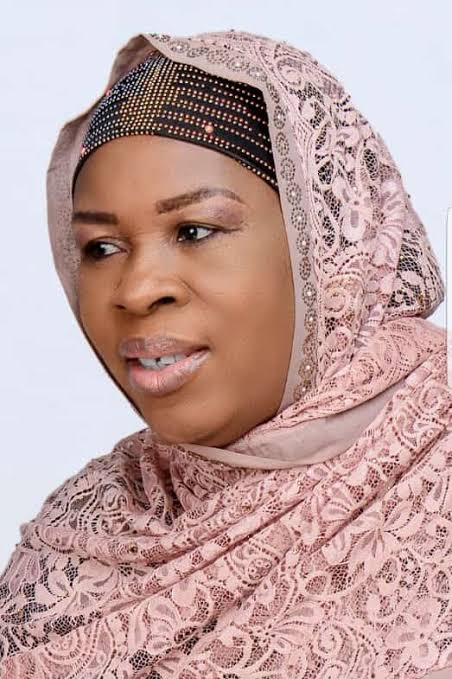How selective electricity tariff officially stratified Nigeria, by Zainab

How selective electricity tariff officially stratified Nigeria, by Zainab Suleiman Okino
The Nigerian Electricity Regulatory Commission (NERC) must have been taken aback by the outpouring of condemnations and criticisms over their proposed “improvement and efficiency” accompanied by 231 percent electricity tariff hike even from unlikely quarters. Neither the Band A customers who will “enjoy” 20 hours of electricity and pay more, nor Band E customers to be supplied only fours of electricity, is excited about the social divides, new status and classification.. As a matter of fact, what binds them (electricity) is perpetually in a state of flux, uncertainty, unavailability lately, and now unaffordable.
The Minister of Power, Adebayo Adelabu at a ministerial press briefing organised by the Ministry of Information and National Orientation last Friday, further elucidated on the new electricity roadmap and disclosed that despite the recent hike, almost 70 percent electricity consumers still enjoy government subsidy. Therefore, “this review is in conformity with our policy thrust of maintaining a subsidised pricing regime in the short run with a transition plan to achieving a full cost reflective tariff for the sector over a period of three years”, the minister said. Government is said to have spent N4.9 trillion in the power sector in 10 years but darkness still looms in the land. And until the recent revelations, Nigerians didn’t even know any form of subsidy existed.
As preposterous as it sounds that Nigerians should gear up for more hike in the next three years, it is even ridiculous, that previous subsidies if any existed, never impacted on the economy nor individual lives. Again, if it did, Nigerians would not have to invest heavily on solar and inverter to power their homes, and small-scale businesses didn’t have to close shops for lack of energy to power their machines.
That is besides the point even. In the new tariff regime rolled out by NERC, Band A customers will receive 40 percent of available supply for at least 20 hours; Band B, 16 hours per day; Band C, 12 hours per day; Band D, eight hours per day and Band E, four hours per day. This selective arrangement is in clear breach of the 1999 Constitution. Chapter 2 (b) says “the security and welfare of the people shall be the primary purpose of government”, while section 17(1) talks about how “the social order is founded on ideals of freedom, equality and justice”.
Security of lives and property has worsened over the years. Electricity, in addition to education, health and food security are social services that government must either provide or be involved in one way or the other. How the Nigerian government thinks they can seek for our votes and still abdicates the responsibilities that come with governance is beyond comprehension. Apart from palliatives, we are yet to see the welfare part of governance in the last few years.
How did it become cool, that a leader would abandon the constitution which he swore to uphold only to do the biddings of IMF which only encourages evil deeds. We didn’t know electricity subsidy existed until the IMF said “electricity subsidies are costly, do not reach those that most need government support and should be phased out completely.” And before you knew it, all hell was let loose. What kind of logic is this? If electricity subsidies “do not reach those that most need government support”, how will their removal do so? Yet, the IMF countries subsidise electricity for the purpose of heating homes in an inclement environment like theirs, to avoid being called out for mass murder.
How can we talk of equality and justice as enshrined in the constitution, if government could decree by fiat that certain privileged class of people would enjoy 20 hours of electricity, against the lower class, whose votes we seek every four years, because they have no voice and name recognition. Most of the areas inhabited by the upper echelon favoured in the new electricity-sharing arrangements are not industrial layouts; they are inhabited by privileged consumers. It is contradictory and smacks of hypocrisy to talk of consuming what we produce when areas suitable for industries will not thrive because, going forward, they will have only four hours of electricity.
READ ALSO: Electricity tariff hike worsens economic strain; How are Nigerians coping?
Moreover, this new policy may heighten rural-urban migration, a situation compounding and creating urban slums and infrastructure pressure, youth restiveness and unemployment. Besides, a four-hour electricity supply is not a befitting commentary for a developing country, a member of G-20, the most populous country in Africa, an oil-producing country and a member of OPEC and an aspiring industrial giant.
A lot has been written on the effect of this badly thought-out power policy reminiscent of the past, but I’m concerned about the widening inequality it will elicit and the inherent stratification, possible social and political unrests this policy can trigger. I still don’t understand why this government’s policies do not factor in the weak. How do we wish them away overnight without much work. While ruminating on this, I came across this beautifully written article in line with my thought written by one Austin Tam-George, a former senior executive fellow at Harvard Kennedy School, Cambridge, Massachusetts, published by Premium Times.
In what he called Orwellian electricity plan, he said “electricity is much more than cables, light bulbs, and switches. In developmental terms, electricity is a crucial thermometer by which we measure the quality of modern life. In fact, no definition of modernity can be complete without a people’s access to electricity.
“This is why governments all over the world see the provision of electricity to their citizens as an important responsibility. Therefore, any policy that segregates access to such a basic and essential service strictly based on economic and social stratification of citizens, is a short-sighted policy and needs to be reviewed.
“The new electricity supply regime will deepen social inequity in the country and reduce the quality of life of the majority of Nigerians, who are set to see far less access to electricity simply because of where they live. This is social apartheid à la carte”.
“Rather than reduce supply to most citizens, the government and its private sector partners should increase, prioritise, and guarantee regular electricity supply to all citizens”.
Obviously, just like fuel subsidy removal and floating of the Naira worsened our economy and destroyed our lives, Mr Tam-George also said the new policy “will deepen economic woes”, adding that: “all over the world, reliable and uninterrupted electricity supply is seen as the ultimate tonic that spurs economic growth. Nigeria has the largest informal sector in Africa, with micro, small, and medium-sized businesses accounting for over 40 percent of the country’s GDP and 70 per cent of employment. These businesses range from subsistent fish farms in rural communities to vibrant, youth-led innovation hubs in informal urban settlements across the country. A segregationist electricity supply policy that excludes this productive swathe of Nigeria’s population will spell disaster for an already beleaguered Nigerian economy”.
Let me conclude this article with another analogy that has gone viral in the social media. “If Cadbury is in Band A and you increase their tariff by 300%, the price of Bournvita will go up and those in Band Z where there is no transformer (electricity) will buy at the increased price. If they buy at higher price, they are the ones paying the 300% increase, not the manufacturer who you want to tax. If consumers don’t have the purchasing power to buy at the new rate, Cadbury will close. If Cadbury closes and others too follow, unemployment will increase. If unemployment increases, insecurity will take a jump. If insecurity jumps, the money you thought you’re making will be diverted to security and it won’t be enough. That is why US, Canada, UK, France and Germany and all developed economies support their factories with billions invested in power subsidy”.
Need I add that it is this same reversed logic that subsidy only benefited the rich that put us in this mess, because by the time the Tinubu government “courageously” removed it, hunger and severe poverty descended on the land such that everything is priced beyond the people’s reach. I enjoin the leadership to reason along with followers, and not think only their ideas or IMF’s are good for all.
Zainab Suleiman Okino is a syndicated columnist. She can be reached through zainabsule@yahoo.com




